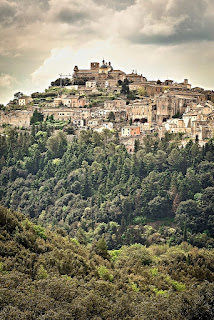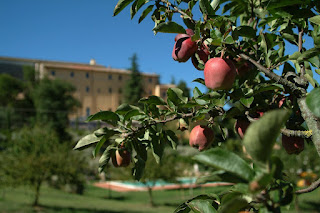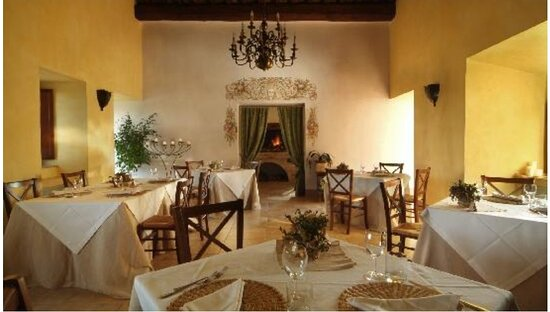Sunday, May 05, 2024 -  2024 Interdisciplinary Art Crime Conference,Amelia Art Crime Conference
2024 Interdisciplinary Art Crime Conference,Amelia Art Crime Conference
 No comments
No comments
 2024 Interdisciplinary Art Crime Conference,Amelia Art Crime Conference
2024 Interdisciplinary Art Crime Conference,Amelia Art Crime Conference
 No comments
No comments
Celebrating our 13th year of academic conferences addressing art and antiquities crimes, ARCA will host its summer interdisciplinary art crime conference the weekend of June 21-23, 2024.
Location: Amelia, Italy
Celebrating our 13th year of academic conferences addressing art and antiquities crimes, ARCA will host its summer interdisciplinary art crime conference the weekend of June 21-23, 2024.
Known as the Amelia Conference, the Association's weekend-long event aims to facilitate a critical appraisal of art crimes and the protection of art and cultural heritage and brings together researchers and academics, police, and individuals from many of the allied professions that interact with the art market, coming together to discuss issues of common concern.
This conference is an annual ARCA event, held in the historic city of Amelia, in the heart of Italy's Umbria region where ARCA also plays host to its Postgraduate Certificate Program in Art Crime and Cultural Heritage Protection.
The conference includes a weekend full of multidisciplinary panel sessions, and plenty of time to meet others who are working towards the protection and recovery of cultural heritage.
Confirmed Presentations (additional names will be added as speakers confirm)
The Victimization of Art
Catherine P. Foster
Partner, Argus Cultural Property Consultants, Washington DC
Timothy Carpenter
Managing Director, Argus Cultural Property Consultants, Washington DC
Where’s the Loot
Colonel Andrew Scott Dejesse
US Army CENTCOM CCJ5, Program Director, Strategic Initiatives Group, Amarillo
Marc Masurovsky, M.A.
Co-founder Holocaust Art Restitution Project, Washington DC
The European Union's CULTNET
Christine Casteels
Project Manager EU CULTNET
Member Driver team EMPACT CSE
Federal Judicial Police DJSOC - Belgium
Revealing Entangled Art Markets and Problematic Art Provenance through the Stendahl Art Galleries Records
Kylie King, M.A.
Pre-Hispanic Art Provenance Initiative, Getty Research Institute, Los Angeles
Repatriation in Two Acts: Identifying & Recovering Stolen Pages of 16th Century American Theatrical History
K.T. Newton, J.D.
Assistant United States Attorney for the Eastern District of Pennsylvania, Philadephia
Exploring Art Crime in Canada: Uncovering the Norval Morrisseau Forgery Ring
Lauren Elyse Gowler, LL.M. Candidate
Queen Mary University of London; The Institute of Art & Law, London
The Other Genocide of the Twentieth Century: Unique Challenges Facing Armenian Art Restitution
Madison A. King, MLitt, J.D., Litigation Attorney
Kolar and Associates, A Law Corporation, Los Angeles
Fighting Illicit Trafficking in Cultural Goods: RITHMS SNA-based Platform as an Innovative Tool to Dismantle Criminal Networks
Michela De Bernardin, Ph.D., Post-doc
Istituto Italiano di Tecnologia, Venice
Interactions between Switzerland and EU’s Cultural Heritage Regulation against Illicit Trafficking in a Borderless Area. Latest Developments and Remaining Vulnerabilities
Katharina Nothnagel-Vivas, Ph.D. Candidate
King Juan Carlos University, Madrid
Strengthening international cooperation in the fight against illicit trafficking. How have things changed in the last decade in terms of international cooperation?"
Charlotte Chambers-Farah, LL.M.
Art Loss Register, London
Making Sense of Fair Use in a Post-Warhol World
Judith B. Prowda, Esq.
Partner, Stropheus Art Law, New York
Offende Principle and Aesthetic Judgment in (Street) Writing
Maria Di Maggio, Ph.D. Candidate in Criminal Law - Dipartimento Jonico in Sistemi Giuridici ed Economici del Mediterraneo - Università degli Studi di Bari “Aldo Moro”, Bari
New Frontiers in Art Crime Encroaching on Old Borders: Protecting Artistic Innovation in the Digital Age
Cinnamon Stephens, J.D.
Owner, Kunst Mitos Consulting, Amsterdam
Fred Van de Walle, M.A.
Marine archaeological conservator, Switzerland
Ritratto di Gentiluomo con berretto nero: A Case Study on The Intersection of the Art Market and Cultural Heritage Protection
Serena Sancataldo, Ph.D. Candidate
Team member of the UNESCO Chair on Business Integrity and Crime Prevention in Art and Antiquities Market, University of Campania Luigi Vanvitelli, Criminal Law Department, Caserta
Explaining Money Laundering in the Art Market to a Jury: My Turn to Be on the Witness Stand
Jane Levine, J.D.
Partner and Co-founder Art Risk Group, New York
Smuggling across the ocean: Loschi’s Christ bearing the Cross in the Gardner Museum
Francesca Romana Gregori, Ph.D. Candidate
Università degli Studi di Milano Statale
Registration:
To register for this event, please go to our Eventbrite page located here.
Conference Networking Events
Saturday and Sunday's conference sessions include complimentary morning and afternoon coffee breaks, with coffee, juices and light pastries or afternoon hors d'oeuvres to allow time for networking.
Friday, June 21st - Casablanca themed Icebreaker Cocktail "Cena" at the Country House Monastero le Grazie
NB: To attend this event, please select the correct registration payment option during your conference registration.
ARCA will open its conference weekend with this relaxing icebreaker cocktail at the Country House Monastero le Grazie, an enchanting centuries-old Cistercian monastery adjacent to the Church and Sanctuary of Santa Maria delle Grazie, built in 1300. This unique conference venue is located in the hamlet of Foce, just a few kilometers outside the centro storico of Amelia and will also play host to Saturday's Gala Dinner.
Saturday, June 22nd- Cloister Buffet Luncheon in the centro storico of Amelia**
Saturday, June 22nd - Italian Slow Food Conference Dinner at Il Ristoro del Priore, Country House Monastero le Grazie (Please RSVP by 15 June 2024). **
Sunday, June 23rd - Cloister Buffet Luncheon - in the centro storico of Amelia**
** Ticketing to the optional Gala Dinner and Conference Lunches can be paid for directly at the conference venues:
Please note: The Amelia Conference has sold out in 2019 and 2023. We recommend that those interested in attending reserve their tickets in advance to ensure availability. Seating is limited and fire-safety prevention rules prevent us from overbooking.
If you have any questions regarding this conference, please contact the ARCA conference organisation team at:
italy.conference [at] artcrimeresearch.org












